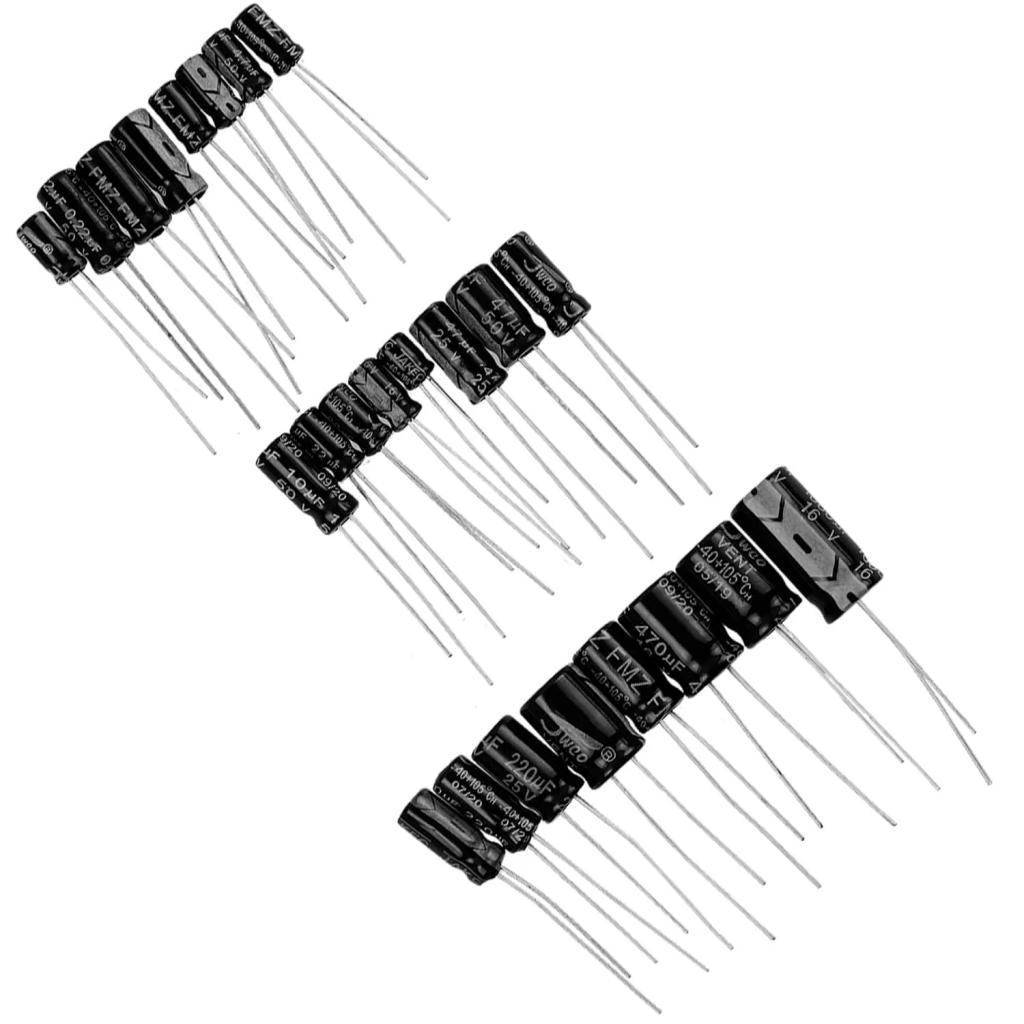Electrolytic capacitors are a type of capacitor that uses an electrolytic solution to form the dielectric layer. This makes them much smaller and more efficient than other types of capacitors, such as ceramic or film capacitors. Electrolytic capacitors are also relatively inexpensive, making them a popular choice for a wide range of applications, a typical example is the 0.1uF 50V Electrolytic Capacitor.
0.1uF 50V Electrolytic Capacitor Price
The price of the 0.1uF 50V electrolytic Capacitor ranges from #50 to #450 depending on the voltage rating that is needed.
What is a 0.1uF 50V Electrolytic Capacitor?

A 0.1uF 50V electrolytic capacitor is a capacitor with a capacitance of 0.1 microfarads (uF) and a voltage rating of 50 volts (V). This means that it can store 0.1 microcoulombs of charge at a voltage of 50 volts.
Uses & Applications of 0.1uF 50V Electrolytic Capacitors
0.1uF 50V electrolytic capacitors are commonly used in a wide range of applications, including:
- Power supplies
- Audio amplifiers
- Filtering circuits
- Decoupling circuits
- Timer circuits
- Oscillator circuits
- Switching circuits
How to Choose a 0.1uF 50V Electrolytic Capacitor

When choosing a 0.1uF 50V electrolytic capacitor, there are a few things to keep in mind:
- Capacitance: The capacitance of the capacitor should be sufficient for the application. If the capacitance is too low, the capacitor may not be able to store enough charge to meet the requirements of the circuit.
- Voltage rating: The voltage rating of the capacitor should be greater than the maximum voltage that will be applied to the capacitor. If the voltage rating is too low, the capacitor may break down.
- Temperature range: The temperature range of the capacitor should be compatible with the operating temperature of the circuit.
- Form factor: The form factor of the capacitor should be compatible with the layout of the circuit.
How to Use a 0.1uF 50V Electrolytic Capacitor

To use a 0.1uF 50V electrolytic capacitor, simply solder it into the circuit. Make sure to observe the correct polarity, as electrolytic capacitors are polarized. The positive lead of the capacitor is usually marked with a “+” symbol or a colored band.
Benefits of using a 0.1uF 50V Electrolytic Capacitor

0.1uF 50V electrolytic capacitors offer a number of benefits, including:
- Small size: Electrolytic capacitors are much smaller than other types of capacitors with the same capacitance. This makes them ideal for applications where space is limited.
- High efficiency: Electrolytic capacitors have a very high efficiency, meaning that they can store a lot of charge for a given size. This makes them ideal for applications where power consumption is a concern.
- Low cost: Electrolytic capacitors are relatively inexpensive, making them a cost-effective choice for a wide range of applications.
Drawbacks of using a 0.1uF 50V Electrolytic Capacitor
There are a few drawbacks to using 0.1uF 50V electrolytic capacitors, including:
- Polarized: Electrolytic capacitors are polarized, meaning that the positive and negative leads must be connected correctly. If the polarity is reversed, the capacitor may be damaged.
- Leakage current: Electrolytic capacitors have a small amount of leakage current, which can lead to power loss in the circuit.
- Limited lifespan: Electrolytic capacitors have a limited lifespan, and their capacitance can decrease over time.
Conclusion
0.1uF 50V electrolytic capacitors are a versatile and cost-effective component that can be used in a wide range of applications. However, it is important to be aware of the drawbacks of electrolytic capacitors, such as their polarity, leakage current, and limited lifespan. By following the tips above, you can choose and use electrolytic capacitors properly to extend their lifespan and prevent failure
FAQs
Q: Why is it important to choose a capacitor with the correct voltage rating?
A: If the voltage rating of the capacitor is too low, the capacitor may break down. This can cause a short circuit, which can damage other components in the circuit.
Q: How can I extend the lifespan of an electrolytic capacitor?
A: There are a few things you can do to extend the lifespan of an electrolytic capacitor:
- Keep the capacitor cool. Electrolytic capacitors have a shorter lifespan at high temperatures.
- Avoid applying excessive voltage to the capacitor. Operating the capacitor at or near its maximum voltage rating will reduce its lifespan.
Q: Why is it important to observe the correct polarity when using an electrolytic capacitor?
A: Electrolytic capacitors are polarized, meaning that they have a positive and negative lead. If the polarity is reversed, the capacitor may be damaged. This can cause the capacitor to leak or even explode.
Q: What is leakage current and how does it affect electrolytic capacitors?
A: Leakage current is a small amount of current that flows through an electrolytic capacitor even when it is not charged. Leakage current is caused by imperfections in the dielectric layer. Over time, leakage current can cause the capacitor to lose its charge and its capacitance can decrease.
Q: What are some common failure modes of electrolytic capacitors?
A: Electrolytic capacitors can fail in a number of ways, including:
- Breakdown: This occurs when the capacitor is subjected to a voltage that exceeds its voltage rating. Breakdown can cause a short circuit, which can damage other components in the circuit.
- Leakage: Leakage current can cause the capacitor to lose its charge and its capacitance can decrease.
- Dry-out: The electrolyte solution in an electrolytic capacitor can evaporate over time, which can cause the capacitor to fail.
- Venting: The safety vent in an electrolytic capacitor may open if the capacitor is subjected to excessive heat or voltage.
Q: How can I prevent electrolytic capacitors from failing?
A: There are a few things you can do to prevent electrolytic capacitors from failing:
- Choose capacitors with the correct voltage rating and temperature range for your application.
- Avoid operating capacitors at or near their maximum voltage rating.
- Keep the capacitors cool.
- Use capacitors with a long lifespan rating.
- Inspect capacitors regularly for signs of failure, such as bulging, leaking, or venting.


